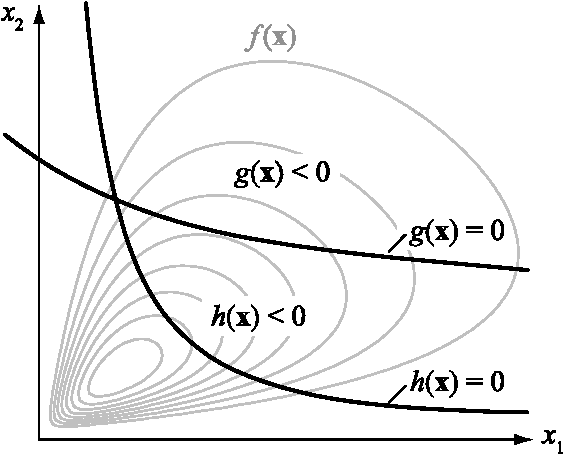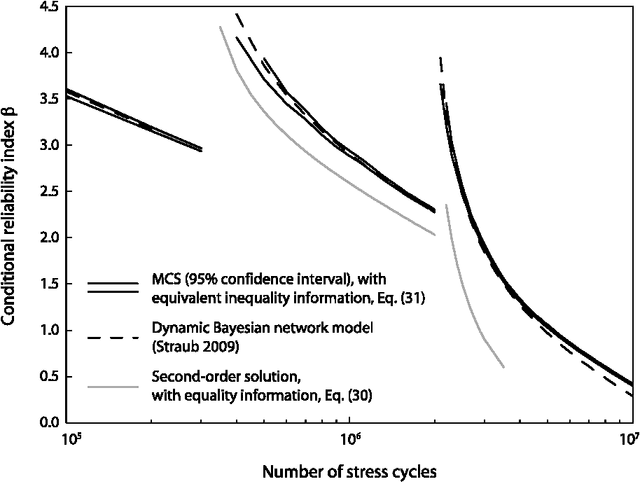Reliability updating with equality information
Paper and Code
Mar 24, 2012



In many instances, information on engineering systems can be obtained through measurements, monitoring or direct observations of system performances and can be used to update the system reliability estimate. In structural reliability analysis, such information is expressed either by inequalities (e.g. for the observation that no defect is present) or by equalities (e.g. for quantitative measurements of system characteristics). When information Z is of the equality type, the a-priori probability of Z is zero and most structural reliability methods (SRM) are not directly applicable to the computation of the updated reliability. Hitherto, the computation of the reliability of engineering systems conditional on equality information was performed through first- and second order approximations. In this paper, it is shown how equality information can be transformed into inequality information, which enables reliability updating by solving a standard structural system reliability problem. This approach enables the use of any SRM, including those based on simulation, for reliability updating with equality information. It is demonstrated on three numerical examples, including an application to fatigue reliability.
 Add to Chrome
Add to Chrome Add to Firefox
Add to Firefox Add to Edge
Add to Edge